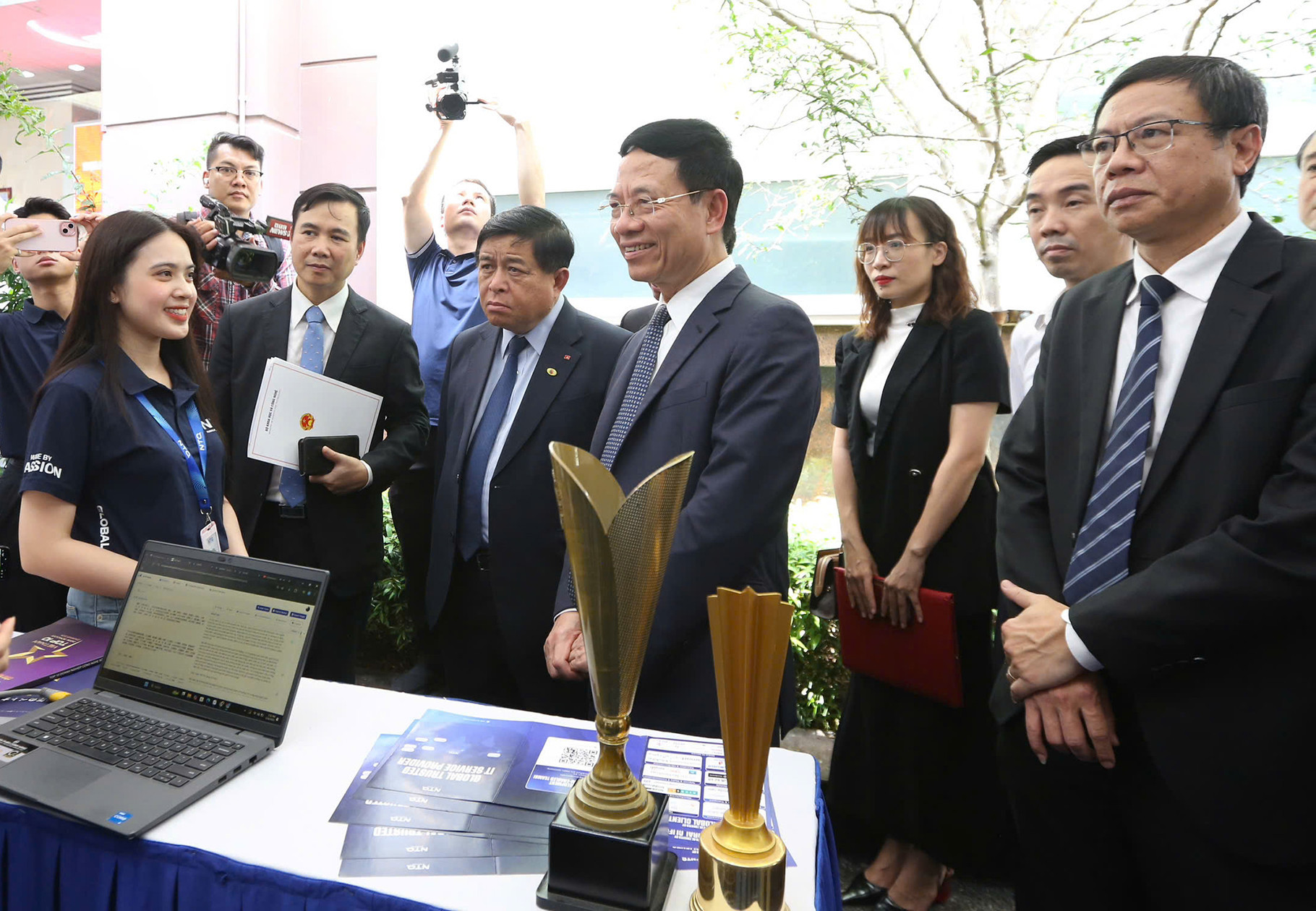
The Ministry of Science and Technology has officially released a list of 21 grand challenges in science, technology, innovation, and digital transformation. This marks a pivotal step in implementing Resolution 57 and opens a gateway for breakthrough development in Vietnam’s science and technology sector.
The 21 key challenges aim to enhance national competitiveness, drive digital transformation, foster innovation, and develop advanced technologies. These challenges provide Vietnamese digital enterprises with real-world problems to tackle, fostering a solid foundation for the country’s sustainable development in an increasingly globalized context.
The challenges span a wide range of critical fields, including artificial intelligence (AI), the Internet of Things (IoT), biotechnology, and blockchain. Among the most emphasized challenges are building a national biological data platform integrated with AI, developing smart digital platforms and sensors for sustainable aquaculture, and researching and producing advanced 5G and 6G equipment.
Other high-priority projects include research and development of low-Earth orbit satellites, the creation of “Make in Vietnam” AI models, the construction of a semiconductor chip manufacturing facility, the establishment of a blockchain service network, and the development of a system to analyze and map industrial property data to support national innovation.
The Ministry has tasked Vietnamese digital technology enterprises with proactively conducting research, mobilizing resources, and participating in solving these recognized challenges. Ministry-affiliated units will lead each challenge and provide active coordination, support, and information sharing to facilitate enterprise participation.
The overarching goal is to create an innovative environment in Vietnam, stimulate cooperation both domestically and internationally, and assert the country’s position while enhancing the application of science and technology in strategic sectors.
List of 21 grand challenges in science, technology, innovation, and digital transformation:
Build a national biological data platform integrated with AI for research, development, and commercialization of biotechnology products in Vietnam.
Apply AI and IoT in monitoring livestock health, disease tracking, and optimizing the veterinary-livestock chain in Vietnam.
Develop smart digital platforms and sensors for sustainable aquaculture.
Create a national forest resource management and monitoring system using digital platforms, remote sensing, and AI.
Produce SNP Chips and apply bioinformatics technology to improve plant and animal breeding, reduce production costs, and ensure food and environmental safety.
Research and develop AI- and IoT-based post-harvest technologies to preserve and stabilize export-quality agricultural products.
Develop bio-additives and eco-friendly concrete materials for coastal and island infrastructure, promoting marine ecosystem sustainability and the blue economy.
Create smart equipment and systems for strategic mineral mining and processing, applying IoT, AI, and clean technology to support localization and sustainable growth.
Build a real-time online management system for scientific and technological projects funded by the National Science and Technology Development Fund.
Research and produce advanced 5G devices, including core network ecosystems and transmission infrastructure.
Research and produce 6G equipment.
Construct a high-tech, small-scale semiconductor chip manufacturing plant for R&D, training, design, prototyping, verification, and production.
Research, produce, and manufacture low-Earth orbit satellites.
Develop virtual assistants for government officials and public servants.
Develop “Make in Vietnam” AI models in language, image, audio, and data - specifically a Vietnamese large language model with at least 100 billion parameters and deep understanding of legal, financial, agricultural, cultural, and historical domains.
Build digital twins for cities and IoT systems, including 3D national maps, urban infrastructure, environment, transportation, logistics, education, healthcare, commerce, disease mapping, underground and satellite spatial data.
Create an IoT connection and management platform for spatial simulation, monitoring, data analytics, and scenario generation for digital, green, and smart urban transformation.
Invest in an 80 MW domestic cloud computing center.
Develop and implement a national blockchain service network.
Build a “Blockchain as a Service” platform to help enterprises apply blockchain in product and service information management.
Develop a system to analyze and map industrial property data to support national technology and innovation development.
Thai Khang